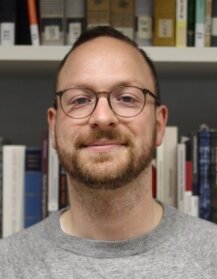Social Phenomenological Geography: Ways of relating. Renegotiating social and socio-spatial relations of distance and proximity in their impact on social cohesion during and after the Corona crisis
Duration: 2020-2021
Project management: Prof. Dr. Simon Runkel, Prof. Dr. Sebastian Henn, Prof. Dr. Stefan StrohschneiderExternal link, Prof. Dr. Michael Wermke de
Funding course: Own funds
Research focus: Geographies of the life course
Content
The renegotiation of social and socio-spatial distance and proximity relationships taking place in connection with the SARS-CoV-2/COVID-19 pandemic in this country is of great interest from a social science perspective. It is to be expected that the "Corona crisis" and the changes caused by the measures of "social distancing" and "physical distancing" will lead to lasting changes in people's social relations. It can be assumed that negotiation processes of socio-spatial distance and proximity relationships in different social groups and milieus will each lead to different levels of concern and to a challenge for the social cohesion of society as a whole. The various individual, household-related, family-related or group-related insularizations go hand in hand with new forms of social (dis)integration, which are particularly reflected in the affiliative (bonding-related) exchange between individuals, groups and milieus.
Against this background, the project aimed to trace and assess possible long-term effects of these renegotiations of social and socio-spatial relations of proximity and distance using a survey design oriented on the Delphi method. The thesis was that the Corona crisis and the associated changes in people's personal and social lives can lead to lasting changes in people's relationships to their world. It was to be assumed that these negotiation processes take place differently in different social milieus and spheres and lead to a challenge to the existing social cohesion of society in this country. The renegotiation of distance and proximity relationships can lead to different accessibilities, experiences of difference and the drawing of boundaries, but also to new forms of social integration and cohesion. In the survey of experts, we focus on eight areas where ways of relating can potentially change. These areas are physical proximity, rites of passage, community experiences, relationships of solidarity, relationships between social collectives, relationships in public space, trust in democracy and ways of relating in economic activity.
In October 2020, an online survey was conducted with experts from the fields of education, science, business, civil society / NGOs, culture and administration. The results of the expert survey were to be processed for local and regional decision-makers in various areas of society such as education, politics, administration and business.
